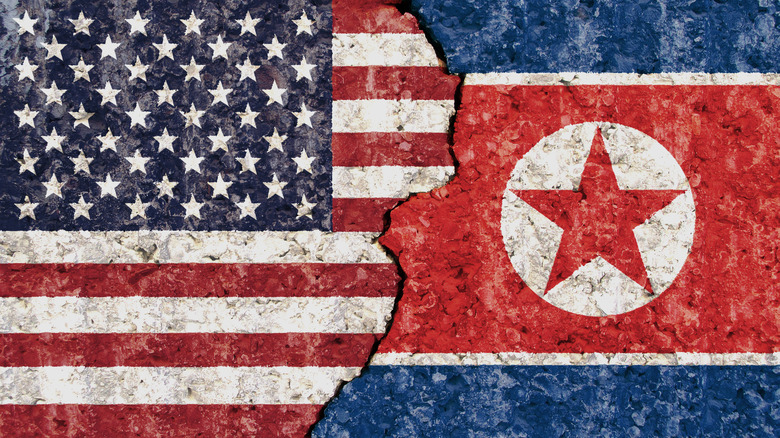How A Top-Secret Organization Secured An Early Victory In The Korean War
The Korean War is not one of the United States' top conflicts. In fact, as The New York Times points out, it is often referred to as "the Forgotten War," since media coverage of it was highly censored and it did not have the social gravity as conflicts like World War II and the Vietnam War. But the Korean War was more than just the setting for the wildly popular 1970s TV show M*A*S*H, it actually served to shape the modern world in more ways than we may be aware of. It not only shaped the countries on the on the Korean Peninsula and their relationships with the United States, it also impacted the broader geopolitical climate by setting the antagonistic tone between the two biggest players in the Cold War.
The Korean War was also the stage of an early iteration of a government entity that would come to play a significant and controversial role in 21st-century life. Let's take a look back to that 1950s conflict and see which modern top-secret organization secured an early victory in the Korean War.
The NSA has its roots as far back as the Korean War
In the years preceding the Korean War, the United States responded to the advancing encryption and communications technologies of the Soviets by creating the Armed Forces Security Agency (AFSA). And according to Mental Floss, while the agency was clunky and ineffectual against the Russians, it turned out to work quite well against the North Koreans. AFSA was able to intercept quite a bit of top-secret communications from North Korea, giving the agency a needed win after a rocky start.
AFSA team members found that once the messages had been intercepted, the hard part was over. For what they discovered was that North Korea was sending highly sensitive military information without encoding it. They didn't need encryption specialists at all, just a Korean translator. The North Koreans did catch on to the fact that their messages were being snatched away and tried to encrypt them thereafter, but the AFSA specialists had no problem decoding them. The agency would go on to be restructured into the National Security Agency, which whistleblower Edward Snowden revealed in 2013 was pretty much watching every single thing we do on the internet.

